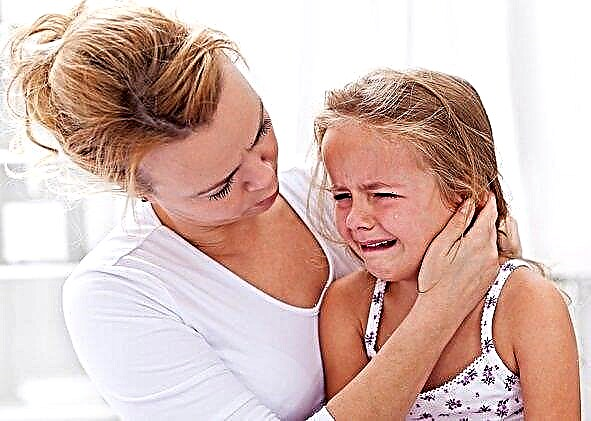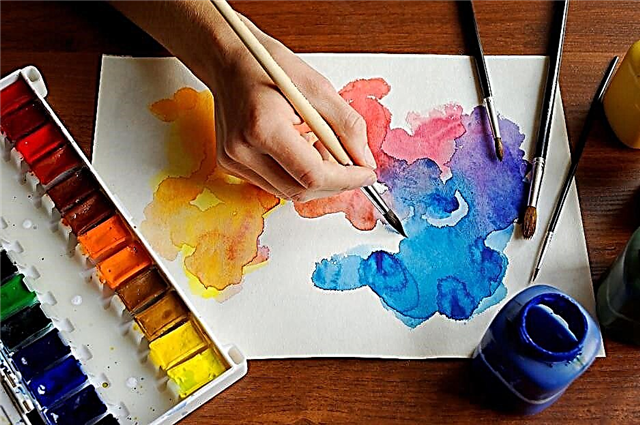 The baby's health is the main concern of his parents. Of course, any disease is easier to prevent than to cure. But no one is immune from a number of infectious diseases or manifestations of seasonal epidemics. It is probably not worth reminding any modern mother about the dangers of self-medication. But sometimes there is a temptation to use the advice of "experienced" friends, if there is no way to get medical help immediately.
The baby's health is the main concern of his parents. Of course, any disease is easier to prevent than to cure. But no one is immune from a number of infectious diseases or manifestations of seasonal epidemics. It is probably not worth reminding any modern mother about the dangers of self-medication. But sometimes there is a temptation to use the advice of "experienced" friends, if there is no way to get medical help immediately.
Tips are perhaps useful if they are given on more “harmless” topics - for example, on the topic of a 1 year old child's day regimen. But, unfortunately, inept actions when taking medications can often only harm. Indeed, even a number of usual, familiar to us drugs for children under one year old cannot be used.
Medicines that pose an increased danger to babies
Aspirin
Aspirin. This well-known remedy is not at all as harmless as it is commonly believed, and you should not grab onto it at the first sign of a cold in a child.
It is necessary to clearly understand: it is not just not recommended to use aspirin or medications containing it for young children - it cannot be done!
Experts associate the use of aspirin in infants with the development of conditions that can even be life-threatening. To be on the safe side, it's best to double-check that the medicine you buy from the pharmacy does not contain aspirin. Another name for aspirin is acetylsalicylic acid, in this form it can be present in the list of ingredients of a particular drug.
Cold medicine
Free commercially available cold medicines. The number of medicines advertised during the seasonal exacerbation of colds and flu increases every year. They promise quick and quick relief. But do not forget that they are designed, in the bulk, for adults.
Pediatrician studies have shown that most of them are not effective for children under one year old. And an erroneously calculated dose can cause dangerous poisoning. In addition, most of these drugs have pronounced side effects - drowsiness, irritation of the gastric mucosa, and allergic conditions are possible. The use of such drugs in children can cause heart palpitations, convulsions and even life-threatening conditions.
Syrups and tablets for colds and coughs with a pleasant taste are medicine, and in no case should parents forget about this. Every year, a large number of cases of poisoning with such drugs are recorded, both through ignorance and through an oversight of parents: the left bright jar with sweet syrup attracts the attention of the baby.
Medicines for nausea
Medicines for nausea. Such drugs are usually not prescribed for children, as their vomiting is usually not long lasting. If there is a danger of dehydration, a doctor will prescribe measures to combat this condition.
[sc: rsa]
Medicines for adults
Medicines for adults. Even reduced doses of medication for adults can be dangerous for a baby.
In general, when giving a child a medicine, you must immediately refuse to take those medicines, the dose of which, in accordance with the weight and age of the baby, you find it difficult to determine.
Another important point: many medicines for infants are concentrated enough. So, in no case should you exceed the recommended dose.
Medicines for other children or other conditions
You can not give the baby medicines prescribed, even in a similar situation, to the children of friends or even their own brothers and sisters.
You can give the child only those medications that the doctor prescribed for his particular condition.
Expired medications
Iron rulewhich applies to both children's medicines and medicines for adults: as soon as the shelf life of a medicine ends, it must be immediately destroyed.
You also need to throw away medicines, the origin or name of which you are not sure about. And at the same time, it is imperative to ensure that the baby does not have the opportunity to get the discarded medicines from the trash can. The best way to get rid of them by flushing them down the toilet is the best way to ensure that medications are safe for your family members.
Chewable tablets
Chewable tablets. Such medicines for children under one year old can be dangerous: the baby can choke on them - even if he is already eating something other than milk or formula. When using such dosage forms, it is better to consult with a doctor in advance - whether they can be crushed and taken, for example, with food or drinks. Or coordinate their reception with the time when a particular baby's teeth are being cut.
IMPORTANT! Complete list of first aid kits for a newborn baby



